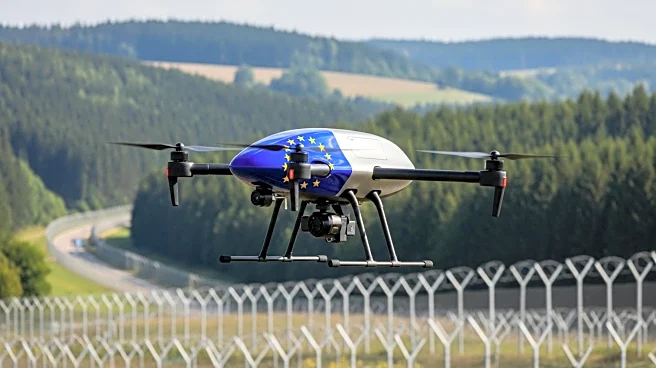What is the story about?
What's Happening?
Slovakia and Hungary have been excluded from initial discussions regarding the EU's proposed 'drone wall' along its eastern border. The meeting, scheduled for September 26, will involve representatives from seven EU countries—Estonia, Latvia, Lithuania, Finland, Poland, Romania, and Bulgaria—along with Ukraine. The exclusion of Slovakia and Hungary is attributed to their close ties with Russia and opposition to stronger EU actions against Moscow. The talks aim to assess the capabilities and needs of participating countries to address security concerns following incidents involving Russian drones violating EU airspace. Poland has activated NATO's Article 4, leading to the Eastern Sentry mission to protect alliance members' airspace.
Why It's Important?
The exclusion of Slovakia and Hungary from the EU 'drone wall' talks highlights the geopolitical tensions within the EU regarding relations with Russia. The proposed 'drone wall' is a strategic response to increasing security threats from Russian unmanned aerial vehicles, which have violated EU airspace. The initiative underscores the EU's commitment to enhancing its defense capabilities and protecting its eastern borders. The involvement of NATO in the Eastern Sentry mission reflects the alliance's readiness to support member states against external threats. The situation could influence EU foreign policy and defense strategies, particularly in relation to Russia.
What's Next?
The EU's 'drone wall' initiative may expand to include more member states in future discussions, potentially altering the dynamics of EU defense cooperation. The ongoing security concerns could lead to increased military collaboration among EU countries and NATO allies. Slovakia and Hungary's exclusion may prompt diplomatic efforts to address their relations with Russia and align their policies with broader EU security objectives. The effectiveness of the 'drone wall' and NATO's Eastern Sentry mission will be closely monitored, potentially influencing future defense strategies and international relations within the region.














